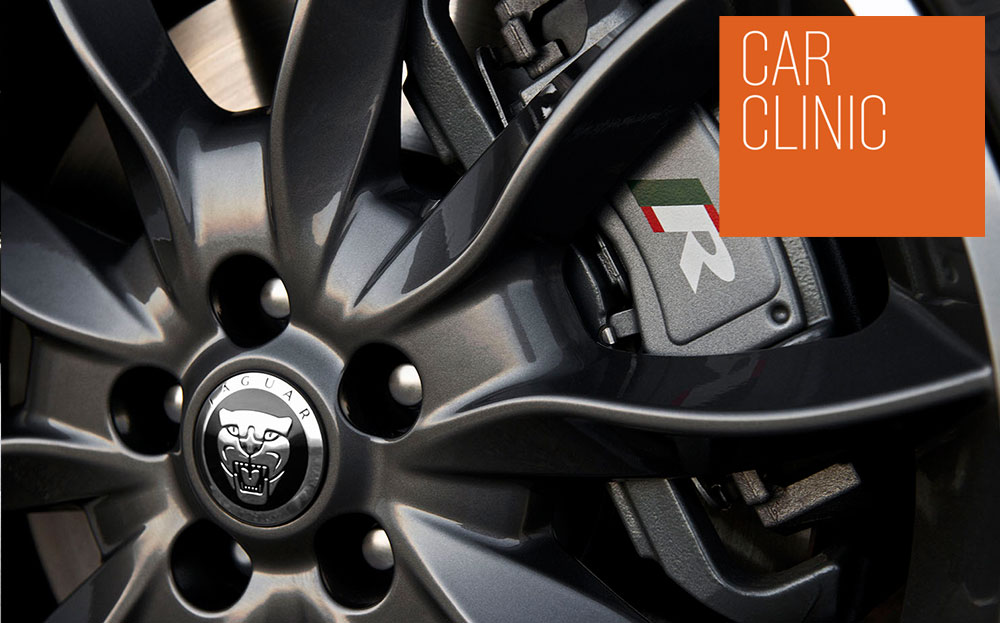How can I tell if my antilock braking system is faulty?
Your motoring problems solved

Q. If I feather the footbrake in my five-year-old Jaguar XF at 50-60mph, the steering wheel judders. When I depress the brake pedal more firmly, the juddering stops. I suspect a problem with the sensors on the antilock braking system. Am I right? JA, Hartlepool
Click to read car REVIEWS or search NEW or USED cars for sale on driving.co.uk
A. Antilock braking is not the reason why the steering wheel is juddering. Instead, it’s likely that the steel brake discs have worn slightly unevenly. When you press the brake pedal, the pads squeeze the disc and slow the wheel. But if the disc surface has become uneven, when you start to apply the brakes the pads brush first against the least worn parts, which leads to juddering felt through the steering wheel. The wear will get worse over time, eventually leading to juddering through the brake pedal too.
Pressing harder squeezes the pads tighter against the disc, overwhelming any partial contact and stopping the feathering.
Heavy automatic cars are prone to uneven disc wear because of the hard work the front brakes have to do — the S-type and XF Jaguars are well known for it. The cure is simple: make the discs smooth again, and possibly replace the pads in case they contributed to the problem.
If the discs are in decent condition, they can be reshaped, or “skimmed”. Searchskimmydiscs.co.uk to find a local workshop with suitable equipment; expect to pay £30-£40 per disc.
If you need to replace the pads as well, ensure that when you order the new ones you specify genuine Jaguar originals. They are more expensive — around £110, against £50 or less for equivalent parts — but given that they should last for 20,000-30,000 miles of vibration-free braking, much longer than the cheap version, the premium is not a huge amount to pay.
TIM’LL FIX IT
Tim Shallcross used to train AA patrols to fix cars. Now he advises the Institute of Advanced Motoring – read more from Tim here.
GOT A PROBLEM?
Email your question to carclinic@sunday-times.co.uk or write to Car Clinic, Driving, The Sunday Times, 1 London Bridge Street, London, SE1 9GF, with a daytime phone number, your address and as much detail about your car as possible. We can’t reply in person, so don’t send original documents or SAEs. Advice is given without legal responsibility.





